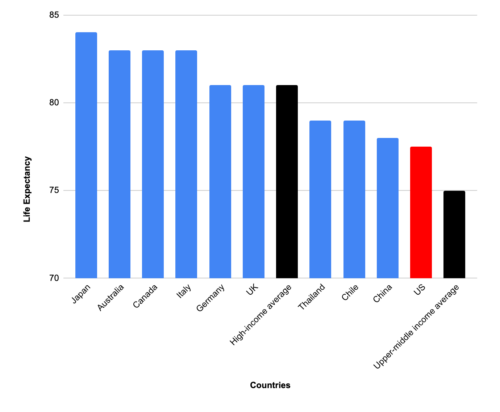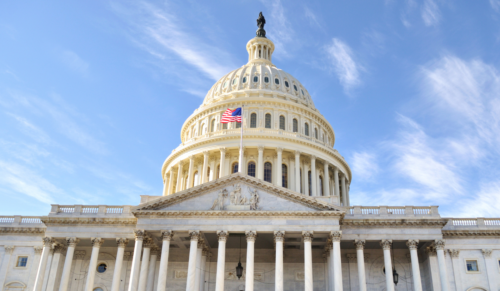Millions Will Lose Jobless Benefits After Christmas Day
By: / 10.30.2020
House Speaker Nancy Pelosi warned the Trump administration yesterday that if they do not reach another coronavirus relief deal, at least five million people (and potentially more) will lose their unemployment benefits, largely because two new unemployment expansions are scheduled to expire on December 26. Yet any deal they strike to extend that aid would need approval from Senate Republicans who spent the last month prioritizing partisan court packing rather than passing a relief package that they say would be a “death knell” for their majority and undermine their argument for obstructing spending under a potential Biden administration. The Senate GOP must stop playing politics with the unemployment benefits keeping millions out of poverty and extend them until job seekers can once again earn a good wage. If they don’t, the next Senate and president will have to do so after benefits have already lapsed.
The $270 billion expansion of Unemployment Insurance that Congress enacted through the CARES Act successfully mitigated what began as the worst unemployment crisis since the Great Depression. It aimed to replace roughly 100 percent of the average worker’s lost wages by boosting all benefits by $600/week. Republicans already let this temporary benefit hike expire in July over misplaced fears that such a large benefit would dissuade some people, particularly those who received more in benefits than they lost in wages, from going back to work. But the CARES Act also expanded benefits through two other programs that expire at the end of this year. Pandemic Unemployment Assistance (PUA) gives benefits to people such as gig workers and freelancers who do not qualify for traditional unemployment benefits, while Pandemic Emergency Unemployment Compensation (PEUC) extends normal unemployment benefits by 13 weeks.
PUA and PEUC are essential tools in the fight against this protracted pandemic recession. Over 60 percent of the 23 million people who claimed unemployment in the week ending October 10 received benefits through one of these new programs (these numbers may include some duplicate or ineligible claims), and the share is likely to grow as more unemployed workers move from normal benefits onto PEUC. Federal relief efforts such as the unemployment expansions were so effective at replacing lost incomes that poverty actually fell at the beginning of the crisis, rather than rising.
Back in May, House Democrats proposed extending these programs through January 2021 and have since proposed a new extension for people who exhaust all available benefits. But Senate Republicans refused to even begin negotiations over a new relief deal until well into the summer and oppose spending anywhere near enough money on the nation’s recovery. Senate Majority Whip John Thune doubted this Senate could find the necessary votes to pass anything at all, meaning relief may not come until after December 26 – if even then.
If Senate Republicans let these programs expire, people on PUA will lose their benefits entirely. Most PEUC claimants will move onto another program called Extended Benefits, which offers just 13-20 weeks of additional benefits and is only available in states with high unemployment rates. But nine states do not have high enough unemployment rates to offer Extended Benefits, meaning their beneficiaries will also lose their benefits even if it is not possible (or not safe) for them to earn a paycheck.
Without benefits, millions of people would face dire financial straits. Low-income households that likely had little in savings have been more than twice as likely as high-income households to have someone lose their job during the pandemic, and jobs could become even harder to find as the winter brings a new surge of coronavirus cases that could further slow the economy down. Without savings or income, job seekers will struggle to pay for essentials such as groceries and rent, and the economic pain will spread to the businesses where job seekers would have spent their money.
Senate Republicans can decide today to extend these vital unemployment benefits. Doing so before December 26 would keep benefits from lapsing and help job seekers pay their bills on time. It will also keep states from disassembling the systems that administer those benefits, which would take time to rebuild should Congress extend benefits retroactively because of state unemployment systems’ archaic information technology. But if beneficiaries lose their vital financial support while President Trump and the Senate GOP are in charge, they will be without support for a while even if the next administration takes the necessary action of retroactively extending benefits.
Moving forward, policymakers should avoid recreating the Christmas benefit cliff through the adoption of “automatic stabilizers” – mechanisms that automatically increase the generosity of unemployment benefits for as long as economic data shows the labor market in crisis and gradually return benefits to normal as the labor market recovers. Tying unemployment benefits to real economic conditions, as many Democratic members of Congress have already proposed, would guarantee that laid-off workers keep getting benefits until there are jobs for them to find, regardless of the politics in Congress. Adopting such automatic stabilizers as a permanent feature of the Unemployment Insurance system would make our country more resilient in both the current and future recessions.
There are less than two months for the Senate GOP to put politics aside and join Democrats in preventing vulnerable people from going over the benefit cliff. No matter what the president says, this crisis will not “disappear like a miracle,” and his constituents will continue to need support as we navigate this national crisis. But if this Senate will not act, the next one should move quickly to restore benefits for jobless Americans and modernize the Unemployment Insurance system so future beneficiaries can pay their bills regardless of Congressional politics.






